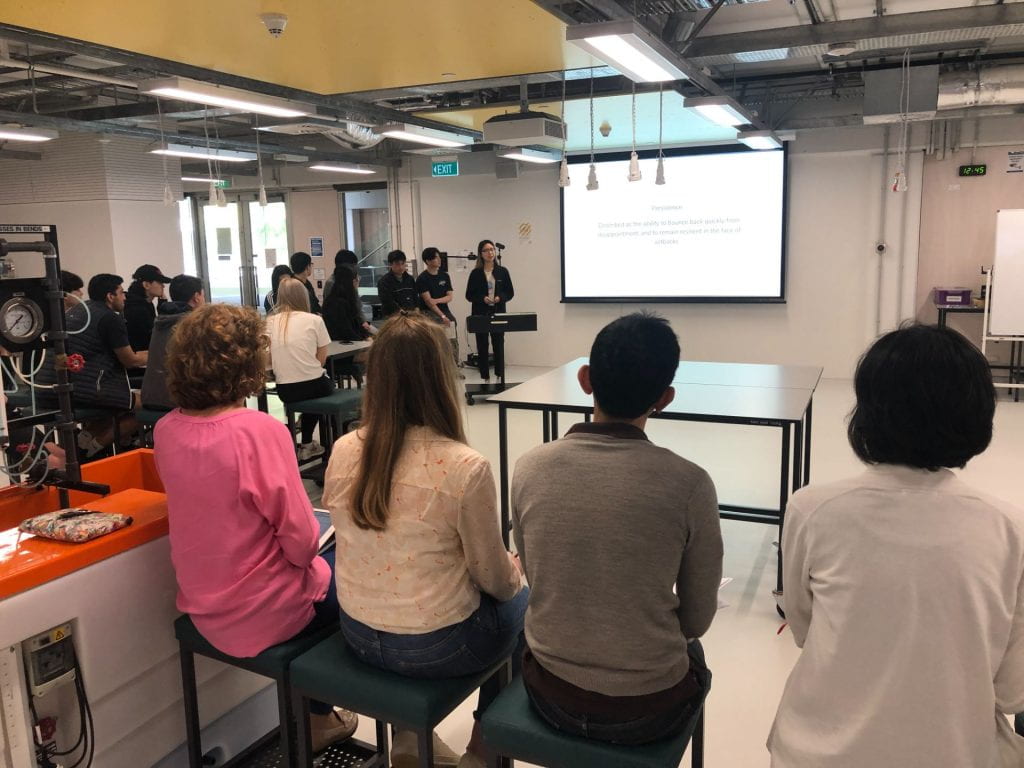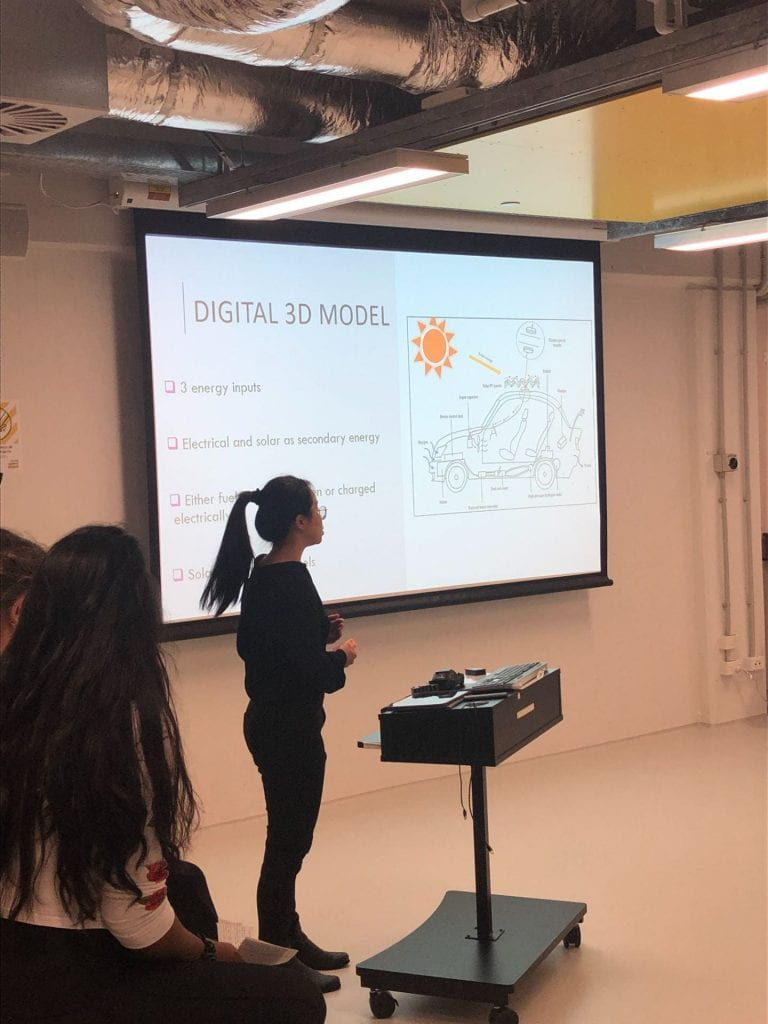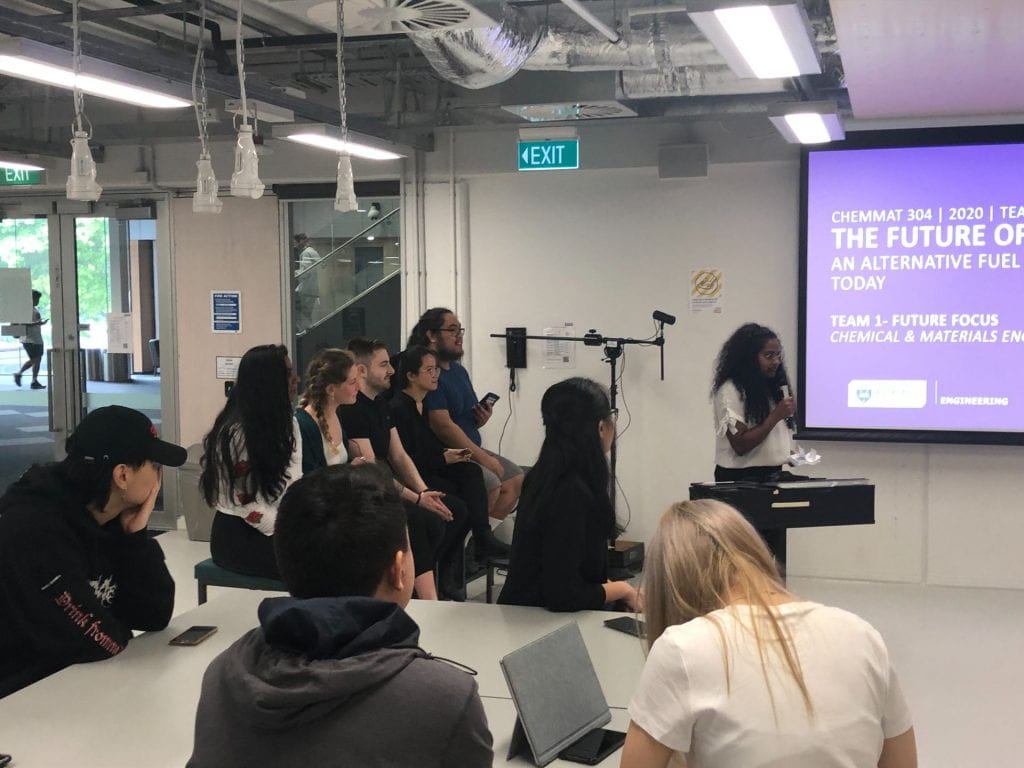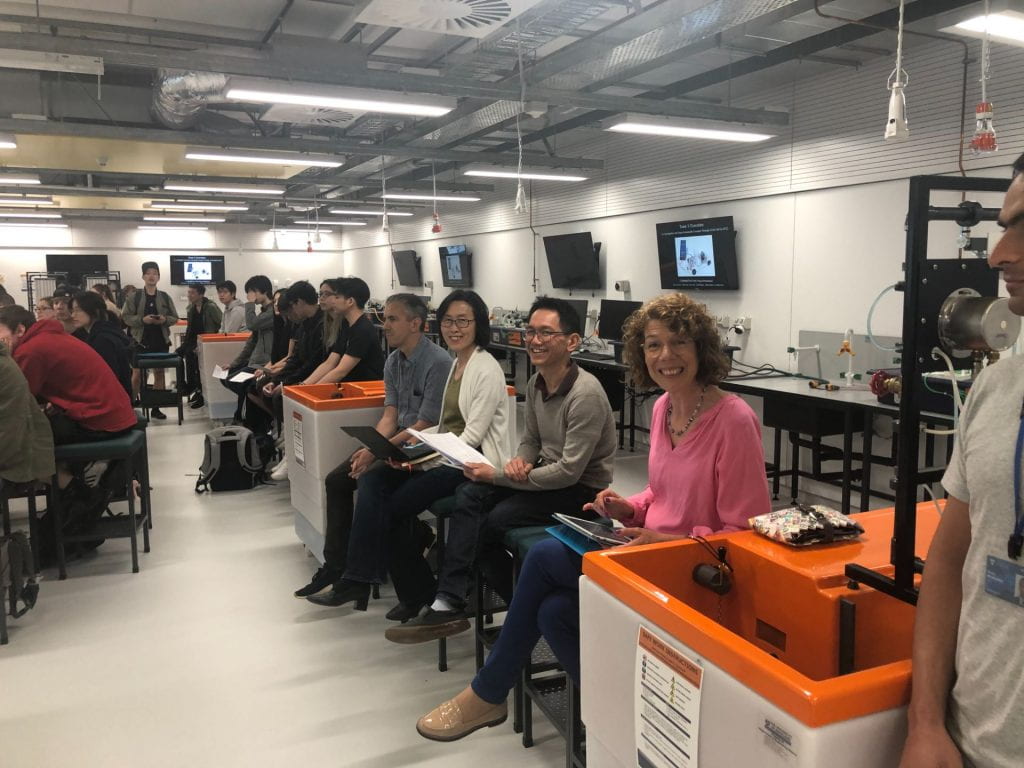Photo: CHEMMAT’s Dr Andrea Kolb, Professional Teaching Fellow
The Alternative Fuel Vehicle (AFV) team project is part of an elective for our Part III students and discusses the energy sector’s future. The project spans the entire semester and requires the students to work in teams on one out of six topics. Each topic has been designed to develop a specific transferrable skill while customising an AFV. The AFV is a toy-sized vehicle powered by a small hydrogen fuel cell (Year 12 science kit), and each team has their own. The project works as follows:
In week 1, all students learn about their transferrable skills during two sessions with certified practitioners in the Unleash Space. This exercise also helps students identify 4–5 partners with the same goals for teaming up.
Between weeks 1 and 11, all teams need to work on their project briefs by completing assignments. The assignments include writing a project proposal and a risk assessment, writing their team contracts, giving each other constructive feedback, submitting voicemail messages that update the instructor on the project status, and reflecting on their skill development progress. For example, the ‘idea generation’ team must develop five feasible designs that safely transport a 330-ml soda on their AFV. After the project proposal was approved, the students create their design solution using the rapid prototyping facilities of the Multi-disciplinary Learning Spaces (MDLS). Throughout the ten weeks, the students keep track of their skill development, and team leaders participate in bi-monthly meetings to update the instructor on the teams’ progress; like they will do once they join the workforce as, for instance, a project engineering.
In week 12, the teams wrap up their projects by sharing what they have learned with the rest of the class. The focus is on empowerment and independence: what methods worked best for developing a specific transferrable skill and the most enjoyable technical challenges. From the beginning, it is made clear to students that this team project aims at enjoying themselves while developing multidisciplinary and transferrable skills. Technical failure is acceptable but not for lack of trying.
The end-of-semester survey showed that 86% of students were likely to recommend participating in CHEMMAT 304 to a friend by giving the course a rating of at least 7 out of 10. A student who gave a rating of 10 out of 10 commented that:
“I have learned to develop many skills and knowledge from this course. These include critical thinking, teamwork and time management.”
Additionally, the students were granted permission to use the MDLS in groups of less than 10 persons while the university was closed for other lab and teaching activities, which shows how engaged all students were into their projects.
Supervising the team projects is also fun for the instructors, and CHEMMAT 304 will keep the project to support future generations of engineers on their journey.
– Written by CHEMMAT’s Dr Andrea Kolb, Professional Teaching Fellow






